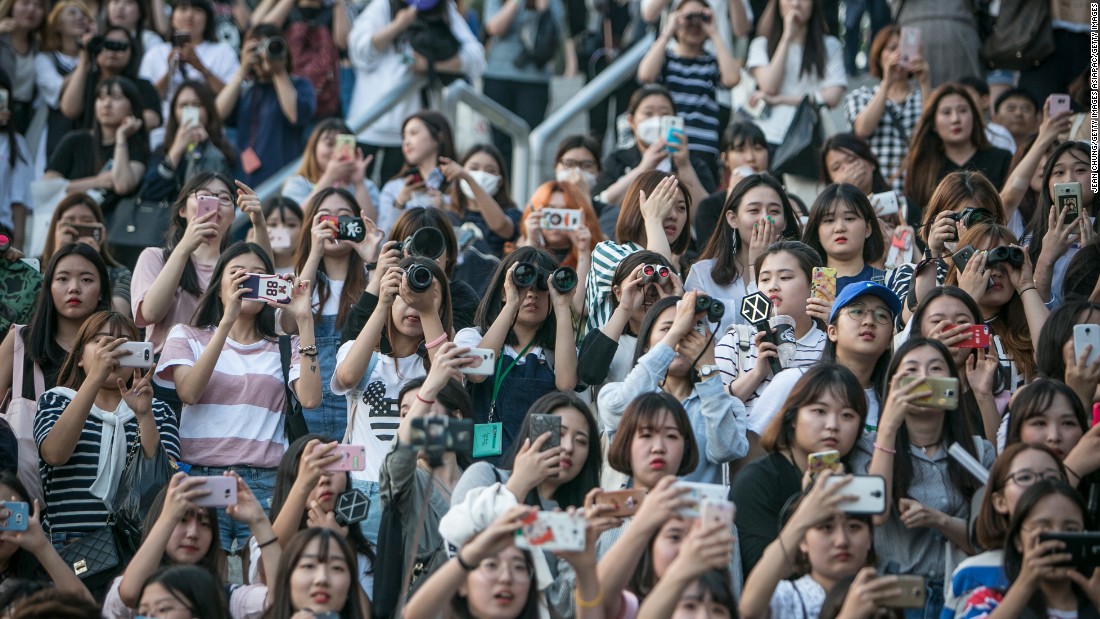It wasn’t because everyone had decided to unite and rise up against the oligopoly of mainstream media, nor was it because our beloved national newspaper had made some gigantic editorial misstep.
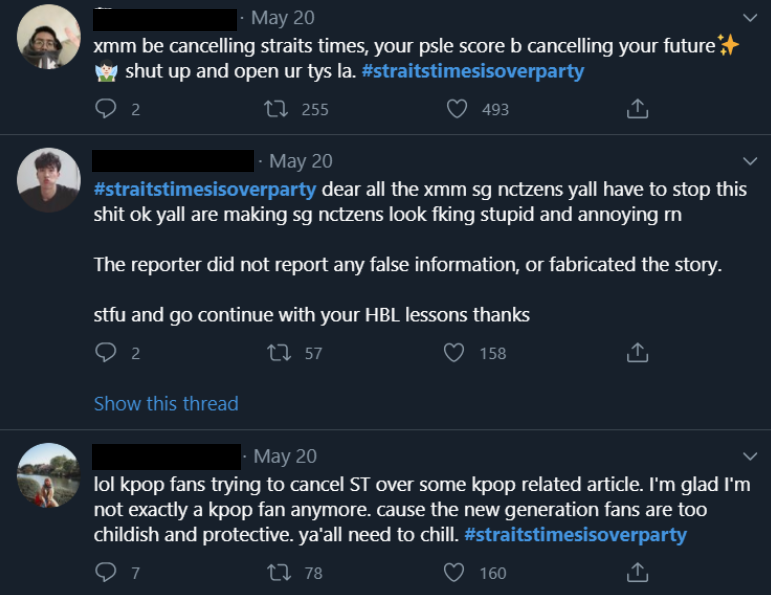
The article in question discussed Jaehyun’s (member of Kpop boy group NCT) post of an apology on Instagram for not abiding by social distancing rules. In true Straits Times fashion, the news article was just that: a piece of reporting not worthy of further analysis.
But some Jaehyun fans took issue with the lack of context, with him being singled out, and even with the choice of cover image.
And, in true Twitter fashion, some particularly upset fans dug around and unearthed Chelsea Kiew, the SPH intern responsible for the article.
“I didn’t understand a lot of the backlash at first, but I realised some people’s feelings were actually quite hurt,” Chelsea, 19, says.
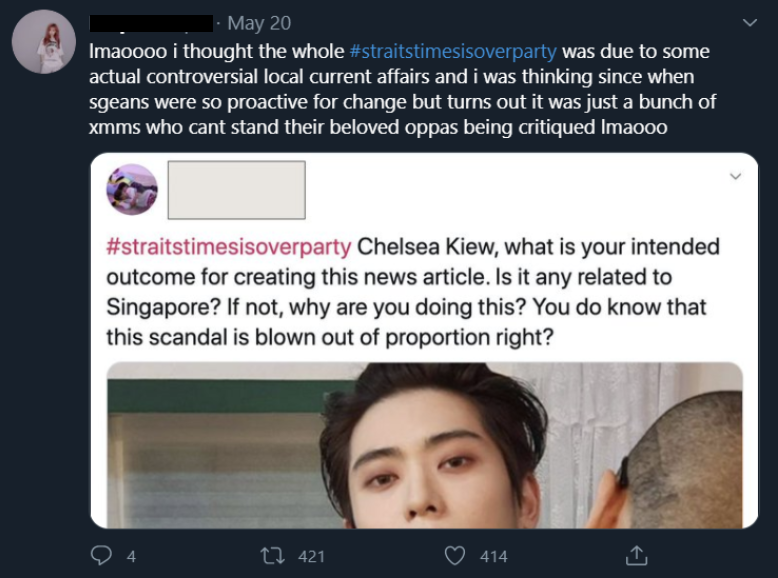
“[The article] was okay to a lot of people, but to someone who was very involved, it did not cover enough,” Chelsea recalls. “It was really whack.”
She had first heard about the hashtag through a friend. Initially, everything seemed fine. People were tweeting about it, and there were no signs that the whole thing was about to blow up the way it eventually did.
“It got so bad the next day,” she sighs. “I thought this was going to be my villain origin story. There were like 3000 tweets.”
Local influencers like Preetipls and Dee Kosh, and even regional media outlets such as SCMP, caught on. Singaporeans on Twitter started using the hashtag without knowing that it had originated from the Kpop community, thinking it was merely a sign of protest against Singapore’s flagship newspaper. Those who had hopped on the bandwagon without understanding the hashtag’s origins merely laughed it off—like many online fads, the hashtag died down naturally.
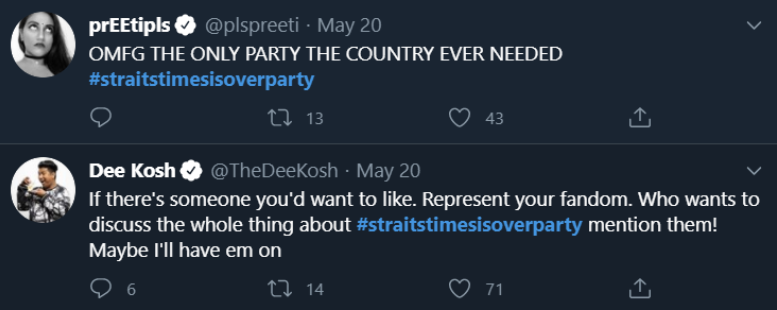
Netizens had unmasked her role as a 19-year old SPH intern. Through her byline, they found her address. They also tracked down her Twitter, Pinterest, and AO3 accounts (a fanfiction website).
Though the incident didn’t exactly leave her scarred, it felt overwhelming at the time to see her entire personal life laid out for public scrutiny.
“They were like, ‘this is where she lives’, ‘she watches anime’,” Chelsea says.
“It was so embarrassing.”
“But I don’t know if I would go so far as to say that I’ve been cancelled,” she muses.
Sarah works for two publications, both of which she declined to name. At the first publication, she reports on Korean entertainment news and fan reactions. At the second, she pitches content and writes longer form pieces.
“For [the first publication], news that isn’t so positive will go out. Personally, I try to base it on facts,” she explains. She translates news from Korean into English, which is then published under a general outlet byline, not her own name.
“When I first started, people would say, ‘you should delete your account’ and ‘delete yourself’, basically telling us to off ourselves,” she says. “A lot of—not really death threats—but mild death threats. But it was not personal, since it was anonymous. But if you consider reading a few hundred of those …”
At the second publication, where her name is clearly plastered beneath the title, it’s another story altogether. She’s been harassed on Curious Cat, an anonymous messaging platform, and so have her friends. “They said things like ‘oh she’s rich but she took a low-paying job’,” she says.
“I had anxiety for a few weeks,” she recalls.
The sheer emotional fervour of Kpop fans isn’t only directed at publications they dislike or at Donald Trump. It’s also directed at members within the community who may have crossed certain arbitrary lines.
“There was this EXO fan that used a lot of slang and slurs, and someone made a thread to expose her,” Sarah says.
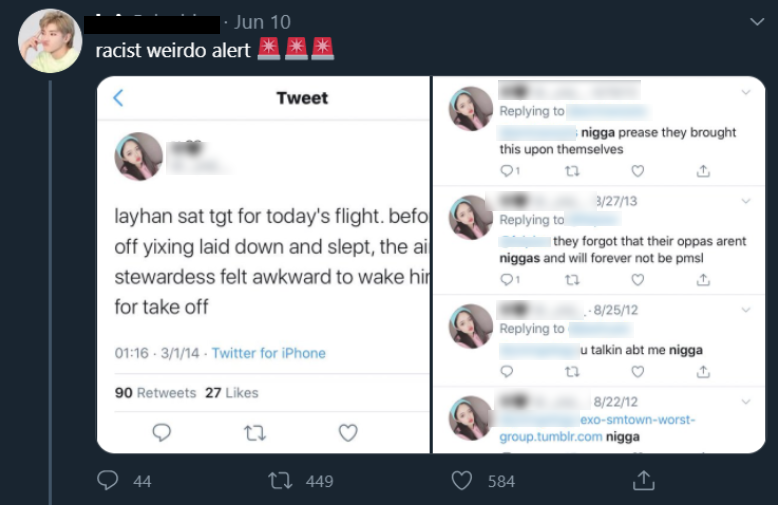
For them, their emotional investment in their idols and the Kpop community as a whole are the only push they need to go all-in. Furthermore, Kpop fans skew younger, and their heavy social media presence makes them all the more visible, which is why they are often the subject of criticism.
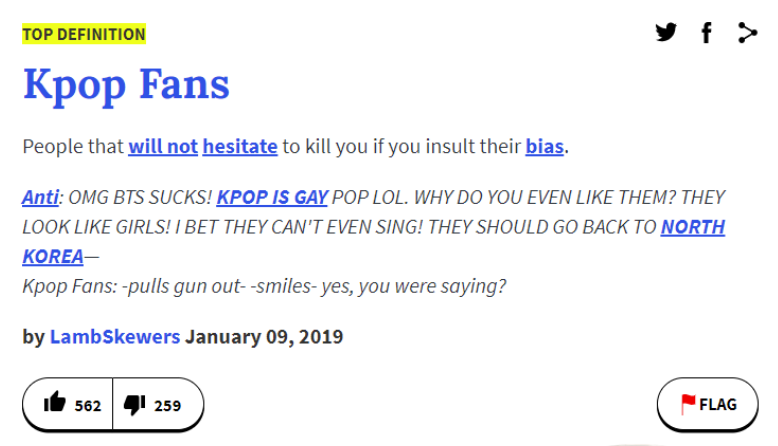
Having seen how the article about Jaehyun blew up, she now treads the line of celebrity news more carefully.
“I did become a lot more cautious and fearful, and there were definitely stories that I shied away from because I feared the possible backlash, especially stories with more … active fanbases.”
Cancel culture, or public shaming via (most often) social media, has become something of a buzzword. Often, it doesn’t start out maliciously—in most cases, people simply want to see a specific wrong being righted. Cancelling someone then becomes a public way of saying that someone, or an organisation, has crossed certain boundaries and needs to be held accountable.
“Cancel culture is important, because it demands accountability of prominent figures,” Chelsea points out. “But when taken to its extreme, it’s scary. Scary not to the individual, but for intellectual thought.”
Sometimes, this mob mentality muddies the issue and forecloses the possibility of a dialogue because there is so much noise online.
“Exposing [influencers] online is a way to educate them, but a lot of people who jump on the bandwagon don’t have these kinds of sentiments in mind,” Sarah says.
“Their sole purpose is just to expose and bring hate.”
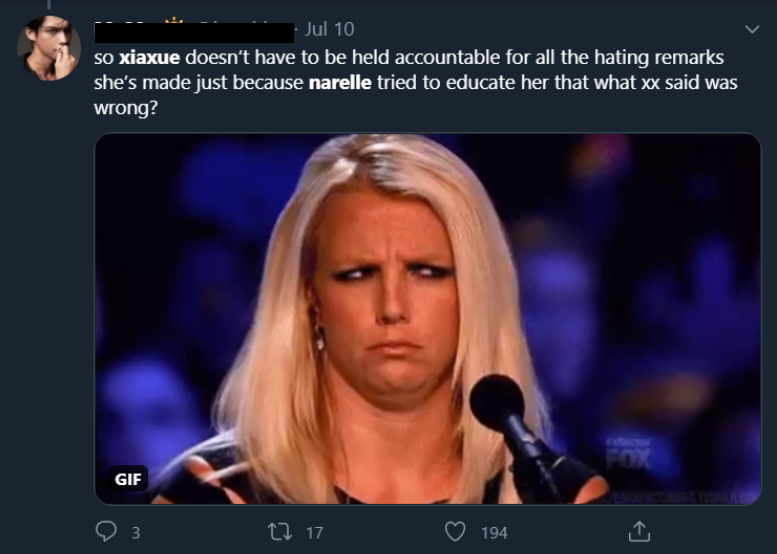
“I think it’s less of the ST thing and more of me growing up,” she says. “When I was younger, I would pick fights with people, but this is a waste of my time, and also, such a lame way to stroke my ego in an attempt to reaffirm my intelligence or whatever.”
While she acknowledges that disagreements can sometimes be productive, where you learn something at the end of it, she adds, “I unlearned past prejudices through dialogues and discussions with different people, and then a lot of soul searching and reflection happened.”
Sarah, too, finds that the volatility of platforms like Twitter have pushed her to tread a lot more cautiously.
“I’ve grown to be more responsible for what I say, but at the same time, now, if I disagree … I try to find the most politically correct answer.”
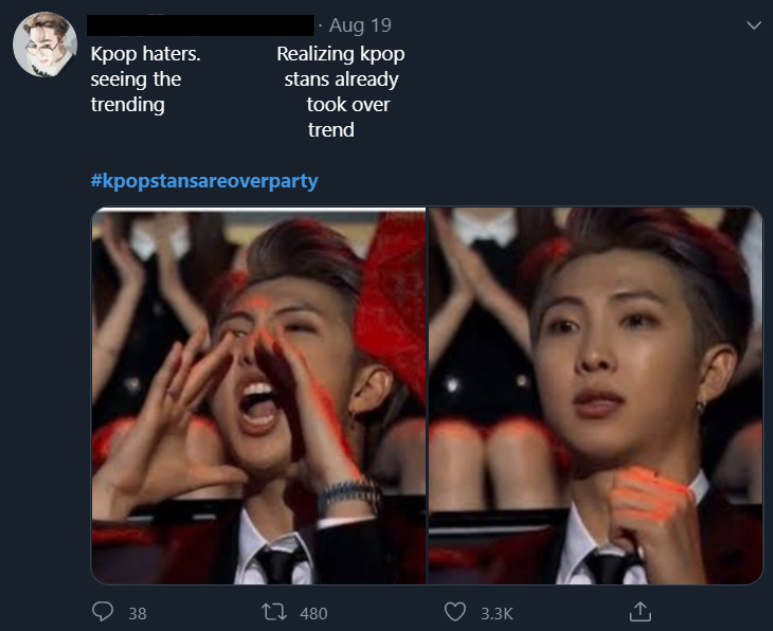
Kpop fans often get a lot of flak (and praise) for their mob mentality. When they disagree with something, the sheer force of it can take over Twitter for an entire 24-hour cycle. This is how they, as a community, disagree—using social media platforms and sheer numbers to increase visibility of certain issues.
That said, disagreement looks different for everyone. The onus is on us to figure out how we can best navigate tricky situations, how to discuss Social Issue #17 with someone who holds an opposite viewpoint, and yet come out of it unscathed, and hopefully having learned something new and found an actual way forward.
*Name changed to protect Sarah’s privacy.

